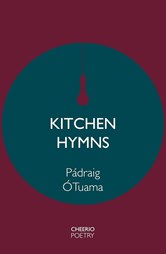THE acclaimed Jewish poet Zuzanna Ginezanka had been on the run from the Nazis for two years when she was betrayed by other Poles, and murdered by the Gestapo at the aged of 26. Her last, untitled poem in Padraig Ó Tuama’s 44 Poems 0n Being with Each Other inherently reopens a century-old debate.
This concerns text and context: how much we need to know about a piece of writing to maximise its appreciation. Ó Tuama provides micro-biographies of his chosen poets at the end of his selection, but the book is most successful when, as in the case of Zuzanna Ginezanka, life and work are woven together.
Ó Tuama, an Irish poet and theologian, convenes an international assembly of poets in this handsomely produced anthology. He is studiously careful not to claim too much for his art, while also illustrating its cost and potential range. “I’m hesitant to imagine that poets have special insight or particular powers of perception,” he argues in his introduction. “We don’t. We just work damned hard to see, remember, write, see again and write more. So a poem is an act of noticing.”
His anthology is also about gatherings that occur in this often solitary craft. “The 44 poems in this Poetry Unbound collection are interested in the energy that occurs between people.” This can range from the dividing of an orange in a typically understated poem by Wendy Cope to Ginezanka’s gracious and redemptive transformation of friends from “birds of prey” into “sudden angels” as they share the legacy of her possessions, sealed by “my blood”.

Ó Tuama offers several masterclasses in this invaluable anthology, not least in the close reading that he brings to each poem, the range of his selections, and his profound emotional and spiritual empathy with the poems and the poets he has selected.
Ó Tuama turns theory into practice in his fourth collection, Kitchen Hymns. Here, amid generous writing, he brings illumination to the ordinary, companionship to pilgrims wrestling with religious belief, joy from the natural world, as in his vibrant evocation of hares, and humour to the ponderous, like the children exploring philosophical mysteries in “Charade”.
He is a fluent and provocative host, asking himself the question that he asks his readers in a series of poems each titled “Do you believe in God?” He answers with apparent yearning:
I have a need or grief,
for what was never there.
I have lost God. God
is the only language that I speak.
A later, stand-alone poem with the same title might summarise the richness and representation of Ó Tuama’s thought, and its expression:
I like walking alone at twilight, he
said,
I like the in between.
She held his gaze, asked, Is that
your answer?
It’s all I’ve got, he said.
Dr Martyn Halsall is a poet and journalist. His latest poetry collection is Lent (Wild Goose Publications, 2025).
44 Poems on Being with Each Other: A Poetry Unbound collection
Pádraig Ó Tuama
Canongate £20
(978-1-80530-258-2)
Church Times Bookshop £18
Kitchen Hymns
Pádraig Ó Tuama
Cheerio £12
(978-1-7394405-7-2)
Church Times Bookshop £10.80
















